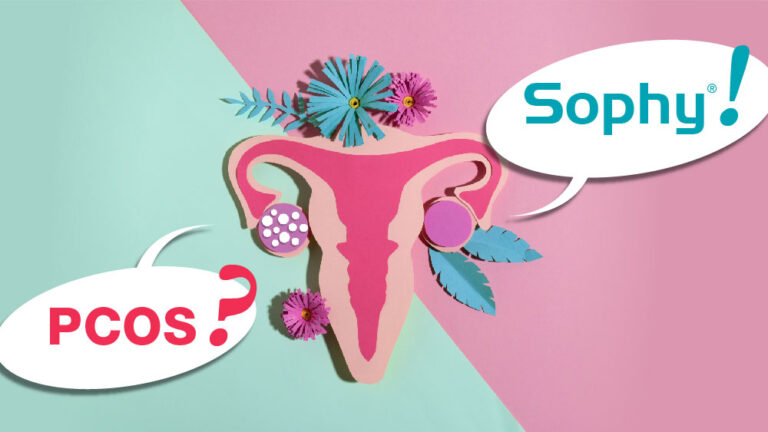
Unlocking Hope for Women with PCOS: Berberine Phytosome® Breakthrough
PCOS is a common endocrine disorder in women, which involves hormonal imbalances and metabolic issues and takes a toll on both physical and emotional well-being. Unfortunately, current treatments often have drawbacks.
A recent Italian study investigates the potential of Berberine Phytosome® to help PCOS-diagnosed women relieve their symptoms. Results are noteworthy, showing reduction in insulin resistance, improved hormonal profiles, reduced hyperandrogenism, and acne amelioration.
The Challenges of Polycystic Ovary Syndrome (PCOS)
Polycystic Ovary Syndrome (PCOS) is a prevalent endocrine disorder that affects countless women of reproductive age worldwide. It’s a condition marked by hormonal imbalances, metabolic challenges, and inflammation, often leading to a myriad of distressing symptoms such as:
- ovarian cysts
- chronic anovulation
- irregular menstrual cycles
- hyperandrogenism, which may manifest as hirsutism, acne, seborrhea, and obesity.
Key factors in the development of hyperandrogenism are hyperinsulinemia and insulin resistance, which affect approximately 75% of women with PCOS.
Standard pharmacological therapies for PCOS typically involve the use of oral contraceptives, antiandrogens, and insulin-sensitizing medications. However, these treatments are often long-term and can lead to side effects like alterations in metabolic parameters, gastrointestinal issues, or interference with fertility.
So, it is desirable to explore the possibility of alternative treatments for PCOS that should be both effective and free of contraindications.
Study Offers a new Hope for PCOS Management: Berberine Phytosome®
A recent study conducted by the University of Pavia titled Berberine Phospholipid Is an Effective Insulin Sensitizer and Improves Metabolic and Hormonal Disorders in Women with Polycystic Ovary Syndrome: A One-Group Pretest–Post-Test Explanatory Study investigates the effectiveness of an innovative berberine Phytosome® formulation in addressing insulin sensitivity and improving metabolic and hormonal disorders in women with PCOS.
In this groundbreaking study, women aged between 25 and 35 years, ranging from normal weight to overweight, and recently diagnosed with PCOS, were recruited. These participants were administered the innovative berberine formulation for a mere 2 months, consisting of two tablets per day.
Specifically, the study employed a formulation containing Berberine Phytosome® (550 mg per tablet), created through the intelligent combination of berberine with sunflower lecithin, pea protein, and grape seed extract. This formulation was designed to overcome the issue of poor berberine bioavailability, a common limitation in its efficacy when used in its raw form (to find out more about the pharmacokinetic profile of Berberine Phytosome® have a look at the study Development of an innovative berberine food-grade formulation with an ameliorated absorption: in vitro evidence confirmed by healthy human volunteers pharmacokinetic study).
Several parameters were assessed during the study, including:
- insulin resistance index (HOMA)
- blood glucose levels
- insulin levels
- hormonal parameters
- acne severity
- inflammation.
To ensure the safety of the treatment, specific liver and kidney parameters were also measured.
Promising Results and Future Implications for Berberine Phytosome®
The study yielded remarkable results across all evaluated parameters. Notably, there was a 49% reduction in insulin resistance index, accompanied by improvements in both blood glucose and insulin levels. The hormonal profile showed a significant decrease in hyperandrogenism, demonstrated by a 14% increase in SHBG (Sex Hormone Binding Globulin) and a 33% reduction in free testosterone levels.
An innovative aspect of this Italian university study was the evaluation of acne, using two specific indices: GAGS (Global Acne Grading System) for measuring acne severity and CADI (Cardiff Acne Disability Index) for assessing resulting disability. Both indices recorded reductions of 61% and 71%, respectively, indicating a substantial improvement in this aesthetic issue. Finally, there was a 50% reduction in measured inflammatory markers, and no adverse effects were reported among the treated women.
In summary, Berberine Phytosome® offers newfound hope for women grappling with the challenges of PCOS. This revolutionary formulation is poised to redefine the landscape of PCOS management, helping women regain control over their lives, restore their confidence, providing a promising avenue for improved health and well-being.
A new study is currently underway to investigate our food supplement Sophy® containing Berberine Phytosome®, 550 mg per tablet. This study aims to provide insights into its potential to specifically address the PCOS-related symptoms of anovulation and irregular menstrual cycles.
